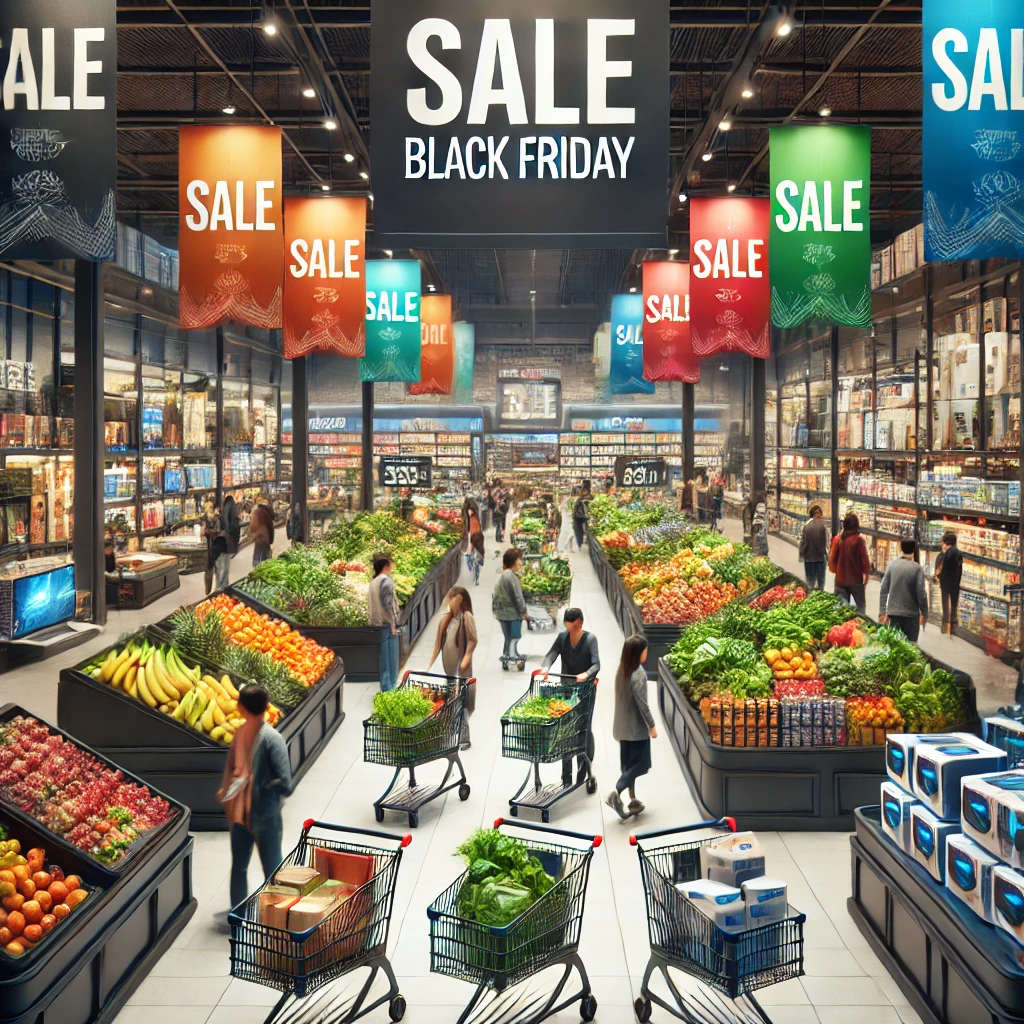Black Friday, a day once synonymous with doorbuster deals and chaotic in-store rushes, has evolved into a month-long shopping marathon. Retailers, including supermarkets, are adopting new strategies to capture consumer spending in an increasingly competitive and inflation-impacted market. This year, the winners are those who adapt quickly to market trends and prioritize customer-centric innovations, while the losers are stuck in outdated approaches.
Winning Strategies in Black Friday 2024
1. Advanced Technology: AI and Data-Driven Personalization
Retailers are using artificial intelligence to fine-tune promotions and inventory management. Big players like Walmart and Tesco leverage AI to dynamically adjust prices, ensuring competitive offers while avoiding margin erosion. AI also helps predict demand, minimizing the risk of overstocking or stockouts during the peak season.
Personalization is another major factor driving success. With customer data at their fingertips, supermarkets and retailers target shoppers with tailored deals based on their purchasing history. This strategy boosts loyalty and increases conversion rates, particularly online.
2. Exclusive Deals and Partnerships
Retailers collaborating with brands or influencers to offer exclusive products or bundles are seeing strong performance. For instance, Amazon’s partnerships with electronics brands have secured its dominance in Black Friday sales, while some supermarkets use collaborations with local producers to highlight premium or seasonal items.
3. Focus on Sustainability
Consumers are increasingly mindful of sustainability, even during sales events. Retailers that integrate eco-friendly offers—such as discounts on reusable packaging, plant-based products, or ethically sourced goods—are appealing to environmentally conscious shoppers. Marks & Spencer, for example, has introduced sustainable discounts that tie into its broader environmental goals.
Where Retailers Are Falling Short
1. Missed Opportunities in Grocery
While fashion, tech, and home goods dominate Black Friday, supermarkets have yet to fully capitalize on the event. With inflation biting into household budgets, shoppers are keen for discounts on essentials like groceries. However, many supermarkets continue to focus their deals on high-margin items like alcohol or premium treats, leaving everyday essentials largely ignored.
2. Supply Chain Challenges
Supply chain issues remain a hurdle for many retailers. Inadequate planning or overreliance on just-in-time inventory systems has led to stock shortages for popular products. Those without robust logistics networks, like Amazon or Aldi, are at a disadvantage, especially when competitors can guarantee next-day delivery or in-store availability.
3. Poor Digital Integration
As e-commerce continues to grow, the gap between digitally savvy retailers and their slower competitors widens. Supermarkets that fail to provide user-friendly online shopping experiences—such as real-time inventory updates, seamless checkout processes, and rapid delivery options—risk losing customers to more agile competitors like Ocado or Instacart.
How Supermarkets Are Adapting
While some lag behind, a few supermarkets are innovating to stay relevant. Initiatives like “click and collect” services, loyalty-based discounts, and Black Friday promotions tied to Christmas shopping are gaining traction. Sainsbury’s, for example, has expanded its digital presence, while Aldi is rolling out new urban stores to attract city dwellers during the holiday rush.
Lessons for 2025
The key to Black Friday success lies in understanding shifting consumer behavior. As inflation and economic uncertainty persist, customers prioritize value and convenience. Retailers that adapt their strategies—focusing on essentials, leveraging technology, and promoting sustainability—will emerge as winners in future Black Friday battles.

